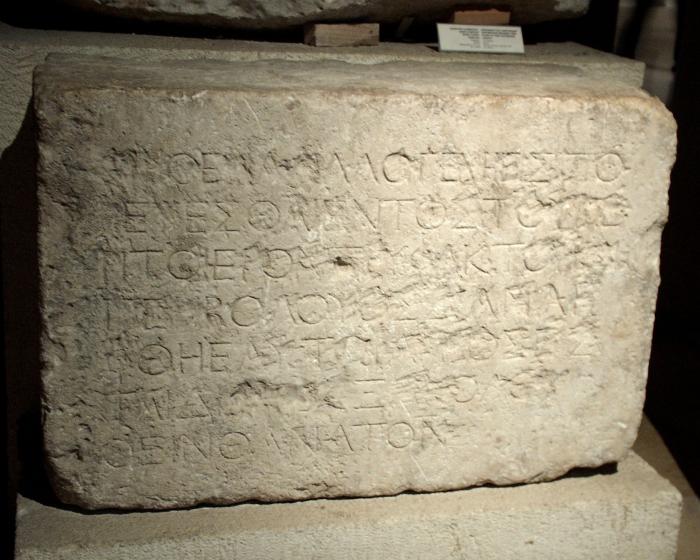NEWS
Call for Applications: 2 postdoc positions
Naples ‘L’Orientale’, ERC TabulaRasa project
leggiXVII Congressus Internationalis Epigraphiae Graecae et Latinae
Bologna 2027
leggiΑΓΩΝΙΣΜΑ. Arti performative, poesia e musica nei centri culturali dell'Ellenismo
Sapienza Università di Roma, 25-26 giugno 2025
leggiRESOCONTI
Bologna EpiDoc Workshop 2019
Bologna, 27-31 maggio 2019
Resoconto di Matteo Rivoli
leggiSAEG 5° Seminario Avanzato di Epigrafia Greca
Torino, 18-20 gennaio 2017
Resoconto di Francesca Giovagnorio
leggiEpiDoc Workshop Bologna 2016
Bologna, 12-14 settembre 2016
Resoconto di Irene Nicolino
leggiUn poster per Berlino
Valentina Garulli ed Eleonora Santin presentano il primo progetto per il prossimo congresso di Epigrafia greca e latina
Ecco il testo con il progetto per un poster che le due colleghe intendono proporre agli organizzatori. Siamo tutti invitati a fornire suggerimenti o a emendare, se necessario.
POSTER PROPOSAL
VALENTINA GARULLI (Bologna University)-ELEONORA SANTIN (HiSoMA, UMR 5189, Lyon)
BILINGUAL VERSE INSCRIPTIONS (BVI):
TOWARDS A NEW EDITION
A complete and up-to-date edition with commentary of the bilingual verse inscriptions
published so far will meet an urgent scholarly need: this poster’s aim is to present such
a research project, describe its guidelines and reveal its first results.
First of all, a definition of ‘Bilingual Verse Inscription’ will be given, in order to mark
the limits of the corpus examined: only the verse inscriptions including both Greek and
Latin verses will be collected and taken into consideration as Bilingual Verse
Inscriptions. All bilingual inscriptions that do not fit such a definition, because the verse
is accompanied by a prose ‘translation’, will be collected and examined in an appendix
to the new edition.
Then, the poster will give some data: the number of the Bilingual Verse Inscriptions
collected and examined, the original location and chronology of the monuments, their
size and shape, the genre of the poems and their length. A special attention will be paid to the monumental contexts of the verse inscriptions. Some of these data will be
illustrated by means of maps (provenance and date of the inscriptions), photos/drawings (shape of the monuments) and diagrams giving the genres, length of texts and size of monuments in percentages.
All these data will be the basis of some hypotheses concerning the cultural, social and
historical contexts and readers of the Bilingual Verse Inscriptions: these texts can cast a new light on the cross-cultural dynamics involving especially the Greek and the Roman element within the Roman empire.
Beside these statistics and hypotheses, the poster will propose a classification of the
Bilingual Verse Inscriptions according to the relationship between Greek and Latin text:
in this regard, a close comparison between them must take into account not only their
contents (the Greek and the Latin text are not always a translation of each other, but
often a variation, sometimes they complete each other, etc.), but also their form
(language, metre and diction, layout of the two parts of the inscription).
